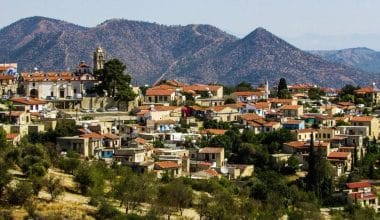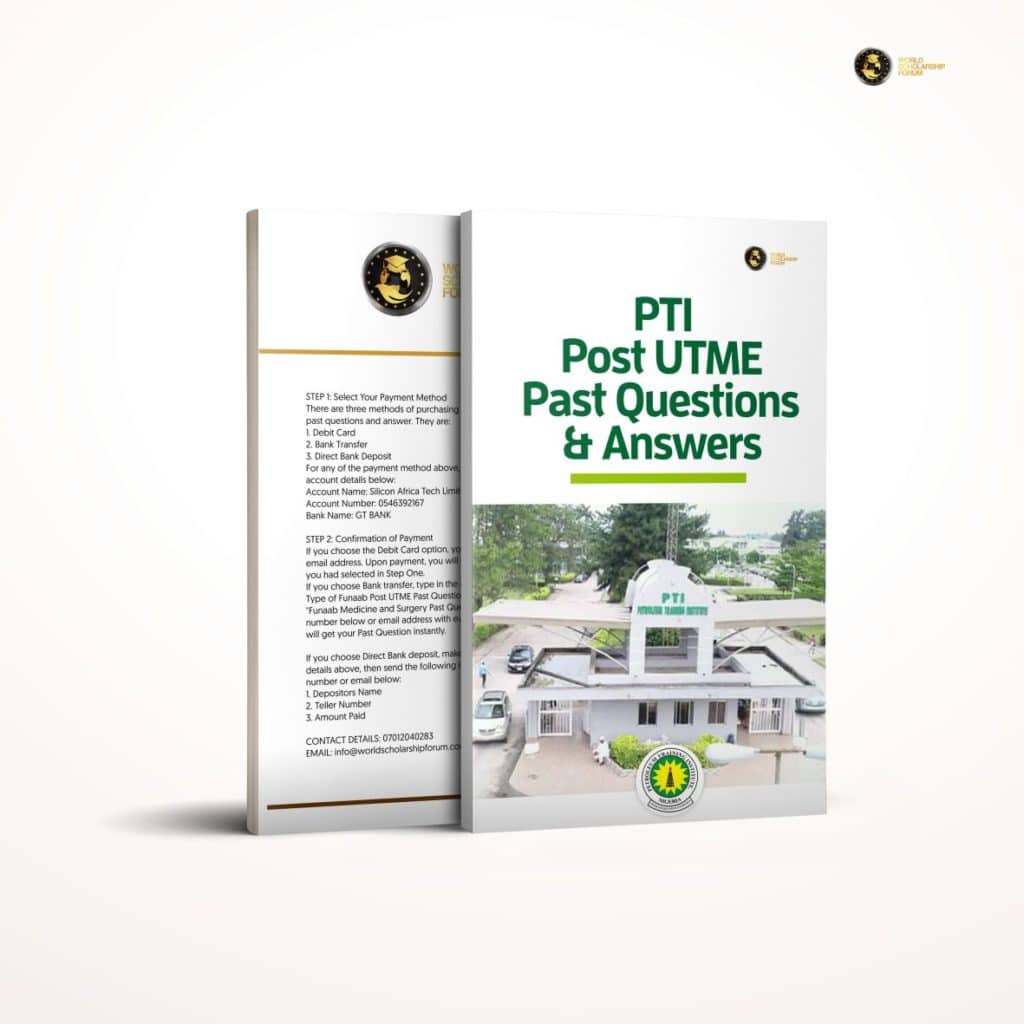Do you want to study at the University of Granada? You may have heard about the University of Granada admission, ranking, scholarships, courses, and tuition fees. Unlike other universities, the University of Granada is a leading European university in Erasmus+. Honeycomb, symbolizes the interconnected nature of the social sciences.
Here this post has detailed information about procedures to Study at the University of Granada. We promise this post will end every doubt about studying at the University of Granada.
See the table of contents below to get an overview of all this post entails.
Table of contents
- University of Granada
- University of Granada Courses
- University of Granada Ranking
- University of Granada Acceptance Rate
- How to Apply for the Credential
- Instructions on How to Complete the Online Application Process
- Public fees for verification of documents
- Renewal
- UNED Portal and Contact Information
- Pre-enrolment at the University of Granada
- University of Granada Campus
- University of Granada Tuition Fees
- The University of Granada Masters
- University of Granada Address
- AUTHOR’S RECOMMENDATION
University of Granada
The University of Granada is a public university located in the city of Granada, Spain. It is currently the fourth-largest university in Spain with approximately 80,000 students.
Its admission process, tuition fees, scholarships, courses, and rankings are top-notch. The university is value-driven and this is why they’ve selected the best of individuals who are keen to teach what you need to know to stand out in your field of study.
During the 1500s and early 1600s, the University of Granada thrived, growing significantly both in power and in prestige.
Numerous university buildings were constructed throughout the city and knowledge areas such as the arts and humanities were introduced.
The University became one of the most important learning centers in Europe, attracting scholars from countries around the globe.
The University Of Granada (UGR) was founded in 1531, succeeding the Madrasah founded in 1349 by Yusuf I, the Sultan of Granada. As such, the institution that we know today as the University of Granada is the result of the adoption of the University Autonomy Act of 1983 considered one of the most important universities in the world in terms of its historical importance.
The UGR is currently ranked among the world’s leading higher education institutions, classified by the Shanghai Academic Ranking of World Universities as the 326th best university in the world.
The UGR vows to remain a university open to all, regardless of culture, creed, or personal beliefs, and is fully committed to pioneering research, innovation, and delivering world-class education.
University of Granada Courses
Students study over a 3 year period, choosing from a range of 27 different subjects and modules, divided into 650 hours of class time and activities.
The Specific Programme consists of 3 courses (1 per year). In each course, students complete 3 obligatory subjects (1 per trimester) and 6 optional subjects (2 per trimester).
Obligatory Courses
- Comprehensive Health Care
- The History of Granada
- Environment and Pollution
- History of Art and Cultural Studies
- Philosophy
- The Human Body
- History of the Spanish Language
- Spanish Literature
- Spanish History
Optional Subjects
- Food Science and Health: New Challenges
- The Atmosphere
- Spanish Language Studies: Usages, Evolution, and Deviations
- Introduction to Psychology
- Architecture and Urban Development in Roman Hispania
- Human Ecology and the Environment
- The Criminal Justice System
- Art and Creativity
- History of Christian and Moorish Societies in Granada
- Climate Studies
- Physical Recreation
- Women’s and Gender studies
- Goya and Internal Reason
- Tourism Opportunities in the Granada Province
- Science in Daily Life
- Protocol
- Geography
- Psychology and Quality of Life
Additional Optional Courses
- Information Technology
- Sports
- Choir and Musicality
- English
- French
- Art and Creativity
- Theatrical Arts: Interpretation, Staging and Scenography Photography and Film.
University of Granada Ranking
The question is: how has the University of Granada’s position evolved in recent years, according to international rankings?
Let us examine a number of internationally renowned rankings based, to a large extent, on objective measurements of scientific and research output.
Perhaps the most high-profile of all is the Academic Ranking of World Universities (ARWU), also known as the Shanghai Ranking.
In this ranking system, the University of Granada has substantially improved its position over the past ten years, rising over 200 places in total.
The 2019 edition of the ARWU places the University of Granada among the top 300 universities on the world and as the fourth-highest ranked university in Spain, reaffirming its position as an institution at the forefront of national and international research.
The University of Granada holds fourth place after the University of Barcelona, Complutense University of Madrid, and the Autonomous University of Barcelona in the 2019 ARWU. It also outperformed other important Spanish institutions such as Pompeu Fabra University, the Autonomous University of Madrid, and the University of Valencia.
From the perspective of specific academic subjects in the 2019 ARWU, with 3 UGR subjects now featuring among the global top 50 and a staggering 35 subjects in total featuring in the ARWU.
In terms of these academic subjects, the UGR is only surpassed by the University of Barcelona (38 subjects) and the Autonomous University of Barcelona (37 subjects). The UGR is also the leading university in Andalusia, followed by the University of Seville (24 subjects), while the remaining universities in Andalusia have a combined total of 28 subjects in the 2019 ARWU.
Particularly noteworthy is the University of Granada’s achievements in the subjects of Library & Information Sciences (36th worldwide); Food Science & Technology (37th worldwide); Mining and Mineral Engineering (47th worldwide), Computer Science & Engineering (top 76-100 worldwide); and Mathematics (global top 76-100).
In the disciplines of Earth Science, Psychology, and Dentistry & Oral Sciences, the University of Granada features among the top 101-150 institutions on the globe, and among the top 151-200 in the subjects of Electronical Engineering,
Instruments Science, Geography, and Statistics. Given this exceptional performance in the prestigious ARWU, the academic year 2019-2024 promises to be another momentous era for our Institution.
We find a similar trend reflected in another leading ranking system — the Scimago Institutions Rankings — in which the University of Granada is currently ranked 5th among 59 higher education institutions in Spain (SIR 2019).
Elsewhere, in the NTU (Taiwan) Ranking, the University of Granada has reached 309th position internationally and is ranked 6th in Spain (NTU 2019).
Meanwhile, in the 2019 edition of the University Ranking by Academic Performance (URAP 2019), the University of Granada has attained the 242nd position in the world and 6th in Spain.
It has also moved up considerably in the 2019 CWTS Leiden Ranking, which measures the scientific impact of universities and their involvement in scientific collaboration, achieving the 267th position in the world and 5th in Spain in 2019 – its best-ever performance in this ranking system (CWTS 2019).
Finally, in the Webometrics Ranking of World Universities, an initiative developed by the Cybernetics Lab (CSIC; Spanish National Research Council) and which examines scientific activity, knowledge generation, and scholarly communication through the Internet and on specific websites.
The University of Granada currently holds the 237th position in the world and 5th in Spain (Webometrics 2018).
Last but not least, the University of Granada has been ranked 197th in the world in the Transparent Ranking: Top Universities by Google Scholar Citations.
This ranking — in contrast to the others so far examined — measures the international impact of specific research profiles.
University of Granada Acceptance Rate
Depending on which country you are from and your level of studies, the application procedure for Spanish universities will differ.
If you want to begin your higher-level education in Spain, you must be able to validate your pre-university studies before the Spanish Ministry of Education.
These studies should be comparable to the Spanish Bachillerato, which is the two-year, post-compulsory stage of education for those wishing to enter university.
Whether you are obliged to do the Spanish university entrance exams (Selectividad) or not also depends on your citizenship status.
Note that these exams are divided into two phases – the general phase and the specific phase.
The general phase corresponds to 10/14th of your mark, and the specific phase accounts for the final 4/14th, the maximum mark being 14.
SEE ALSO: Postgraduate Bursaries for South African Students in 2024
Citizens from the EU and countries with bilateral agreements
General Information
If you are a prospective student from an EU education system or from a country with a bilateral agreement with Spain and meet the academic requirements needed to apply to a university in your home country’s education system, then you are eligible to enroll at a Spanish university without having to sit the Spanish university entrance exams (“Selectividad” or “Prueba de Acceso an Estudios Universitarios” – PAEU).
You are eligible to apply to Spanish universities through this procedure if you have completed your pre-university studies in:
- One of the member states of the European Union
- Andorra, China, Iceland, Liechtenstein, Norway, or Switzerland, all of which have a bilateral agreement with Spain.
Alternatively, you also meet the entry requirements if you have been awarded:
- A European Baccalaureate from one of the 14 European Schools
- An International Baccalaureate from the International Baccalaureate Diploma Programme.
In order to apply via one of these tracks you must:
- Be in possession of the qualifications, diplomas or certificates that appear in the following document, in which you can find your country/education system and the corresponding equivalent grades needed in order to apply to Spanish universities.
Check education systems and entry requirements and ANEXO I “Sistemas educativos y requisitos de acceso” de la Orden EDU/1161/2010 now.
2. Request that your pre-university educational credentials go through the national accreditation process, which ensures you meet the entry requirements in order to apply to Spanish universities.
To complete the accreditation/validation process, you must apply for what is known in Spain as the Credential (henceforth called “educational credential” or simply “credential”) – a standardized and accredited certificate issued by Spain’s National Distance Education University (“Universidad Nacional de Educación a Distancia or UNED”) which proves that your pre-university educational credentials meet Spanish university entry requirements.
Once you have obtained the credential, you can begin the pre-registration process for all public and/or private Spanish universities.
About the Educational Credential
You must apply for the accreditation/validation of the qualifications, certificates or diplomas that prove you have completed the required pre-university education via the UNED, the Spanish National Distance Education University.
THIS IS IMPORTANT:
- The credential is valid for a maximum period of two years from its date of issue.
- The original credential documents should be kept in the student’s possession. It is therefore recommended that you submit certified photocopies, rather than the original credential document, completing university applications. In the case of a lost credential, a duplicate copy can be requested at a cost of €25.
- The credential issued for Spanish university admissions does not include a transfer of academic records or transcripts.
- By obtaining the credential, you do not have to sit the Spanish university entrance exams. However, the mark given through this accreditation procedure will only account for 10/14th of your final mark. If the minimum entry grade for the programme to which you are applying exceeds 10 points, you must complete the “specific phase” of the official Spanish entrance exam for university studies, known as “la Selectividad”.The “specific phase” of the Spanish university entrance exams, which consists of two exams in specific subjects, accounts for the remaining 4/14th of the final mark. By completing this specific phase of the “Selectividad” you can obtain a maximum of 4 additional points, which the recipient university will add to the overall credential score.
- If you wish to improve the mark awarded via the credential accreditation procedure, you can also complete the general phase of the Spanish university entrance exams.
- If you want to sit the specific phase of the Spanish university entrance exams but have not yet received your credential certificate, you will have to submit the document that proves you have applied for the credential.
- If you obtained a credential prior to 2014 and wish to request admissions credentials for the 2016/2017 academic year, you must register to re-apply for the credential. Once registered, in addition to the registration request and payment, you must send a photocopy of the previous credential and a photocopy of a valid national identity document (passport or DNI (Spanish national identity card) or NIE “Número de Identidad de Extranjero”). Please check that the equivalence criteria for your education system have not been modified, in which case you must submit the currently required documentation.
How to Apply for the Credential
In order to obtain the credential from the UNED, you must fill out their registration form, which will ask you for the following information:
- Your name
- Passport or National Identity Number
- The education system in which the original document was issued
- The mark/grade providing access to the Spanish university system, duly converted to standard Spanish marking and with three decimal points
- Issue date of the original document
You will also be asked to provide the following required documentation:
- Photocopy of your Passport or DNI (Spanish national identity card) or NIE (“Número de Identidad de Extranjero”)
- Certified photocopy of the degree, diploma, qualification or certificate enabling the applicant to meet the University entry requirements in the corresponding education system (Resolution from the 3rd March 2014, of the General Secretary of Universities, (Spanish Official State Bulletin) 10th of March of 2014).
For students from the United Kingdom’s education system, the GCSE and GCE certificates should be issued by accredited examination bodies.
Check education systems and entry requirements and ANEXO I “Sistemas educativos y requisitos de acceso” de la Orden EDU/1161/2010 now.
Supporting Document
- Certified photocopy of academic certificates from the last two years of secondary education. In education systems employing more than one approved minimum to the maximum grading scale, the grading scale to be used must be stated in the academic certificate.
- A copy of the UNED registration form with the corresponding bank deposit slip or receipt indicating payment of the corresponding public fees for the verification/accreditation of pre-university certificates enabling access to Spanish university admissions (copies no. 1 and 2 of this printout must be validated and duly stamped by any office of the Banco Santander network or you must provide receipt of the online payment transaction or you must provide the receipt of transfer stamped by the bank from which it has been paid).
The certified photocopies of the documents to be submitted to the UNED should be completed in centers that are associated with the UNED, or in any of the departments of the UNED Student Support Centre in Madrid (Paseo Senda del Rey 7, Calle Juan del Rosal 16 and Calle Bravo Murillo 38).
Certified photocopies made in the Departments of Education in Spanish Autonomous Communities, notarized documents, as well as those made in the Departments of Education of Spanish Embassies in foreign countries and in the Embassies/Consulates of other countries within Spain, will also be valid (in the latter case you must first speak individually with the Embassies and Consulates in advance to confirm that this is possible).
Instructions on How to Complete the Online Application Process
In order to complete the online application process for the credential, please consult the following step-by-step instruction manual in English and Spanish (also available in Chinese), which will guide you through the entire process from start to finish:
Instruction manual for the University Admissions Credentials Application (PDF IN ENGLISH & SPANISH)
Instruction manual for the University Admissions Credentials Application (PDF IN CHINESE)
Public fees for verification of documents
| First application | Normal | Large family | Very large family |
| Accreditation of studies | €60 | €30 | €0 |
| Administration fees | €45 | €22.50 | €0 |
| TOTAL | €105 | €52.50 | €0 |
Renewal
| Renewal of “credential” | Normal | Large family | Very large family |
| Accreditation of studies | €60 | €30.00 | €0 |
| Administration fees | €15 | €7.50 | €0 |
| TOTAL | €75 | €37.50 | €0 |
The corresponding Spanish Autonomous Community must issue the Large Family unit certificate (valid at the time of the request). Certificates issued by foreign offices/organizations will not be considered valid.
SEE ALSO: Top 38 Chinese Government Scholarships 2024 [Updated]
Renewing the “credential”
Fees for the renewal of the “credential” will be applied in the event of receiving a request with the same ID or passport number that was used in the first request.
Suppose you already submitted an ID or passport, but its number has since changed. In that case, a scanned photocopy of the previously issued “credential” or a written statement declaring that this is the renewal of a “credential”, must be attached to the request.
Evaluation and Grading Process
Once you have obtained your accredited certificate, you may apply for a place at the University of Granada or any other Spanish university. This admission procedure allows you to access any undergraduate program.
Two factors determine admission priority: 1) when you apply and 2) your final mark.
Priority is given to those students who submit their pre-enrolment application in the first phase of the admissions procedure. This first phase is usually in mid-July. Click here to find out the deadlines for this year’s admission procedure.
See here for Admissions procedure deadlines.
The second factor that determines priority is your final mark, which is calculated according to the mark that appears in your validation certificate (which must be from 5 to 10 points) and the mark that you have obtained in the specific phase of the university entrance exams (which account for 4/14th of your final mark).
Note that the subjects more directly related to the degree you want to apply for (as specified by the university) have a higher weight in the formula used to calculate the entrance mark for each specific undergraduate degree. The formula is the following:
Entrance mark = mark on validation certificate + (a × M1) + (b × M2)
- M1 and M2 are the two best marks given in the specific phase of the university entrance exams.
- a and b are the multiplication weights that are specific to each degree, and they vary from 0.1 to 0.2, as established by the university
Remember that your mark must be a pass (minimum 5/10 in the Spanish education system) or higher in order to be included in the formula.
Reviewing Your Grade
If you disagree with the grade that you have been awarded, you can request that it be reviewed by sending a printout for grade review, which you can fill out via the following link.
The review request should be sent to the following email address: accesoei@adm.uned.es. The deadline for the request of the credential grade review is one month from the initial date of receipt of the credential.
UNED Portal: Review your grade and printout now.
Disclaimer: The information offered on this webpage is only intended to orient applicants and is subject to modification. The information does not entail any legal rights or entitlements. Please check the UNED website to ensure this information not been modified (contents available in both Spanish and English).
UNED Portal and Contact Information
Here’s the UNED website to get admissions to Spanish universities.
| Entity | UNED (EU Admissions) |
| Phone (Monday to Friday (GMT+01) 9:00am to 14:00pm) | +34 913989557 +34 913987656 +34 913989554 +34 913989625 |
| accesoei@adm.uned.es | |
| Webpage | UNED Portal |
| Address | Calle de Juan del Rosal, 14, 28040 Madrid, Spain |
Disclaimer: The information offered on this webpage is only intended to orient applicants and is subject to modification. The information does not entail any legal rights or entitlements. Please check the UNED website to ensure this information has not been modified (contents available in both Spanish and English).
UNED website: Admissions to Spanish universities
Non-EU Pre-University Studies
If you have completed your pre-university education in a country that is not a member of the European Union, Andorra, China, Iceland, Liechtenstein, Norway, or Switzerland and want to begin your undergraduate studies at a Spanish university, you must do the following:
- Validate your pre-university studies before the Spanish Ministry of Education
- Pass the Spanish university entrance exams
How to Validate Your Pre-university Studies
You can validate your pre-university studies at the Ministry of Education, at a Provincial Government Office, or at a Spanish embassy or consulate in your home country.
Spanish Ministry of Education
C/ Alcalá, 36, 28071 MADRID
Tel.: 902 21 85 00
Provincial Government Office of Granada
C/ Gran Vía de Colón, 50, 18010 GRANADA
Tel.: 958 90 90 00
Click here for more details about the validation procedure on the website of the Spanish Ministry of Education (website in Spanish).
Spanish University Entrance Exams
Once you have your validation certificate, you must complete the Spanish university entrance exams through the UNED, the Spanish National Distance Education University.
Click here to learn about registering for the exams on the UNED’s website (website in Spanish).
Contact information for the UNED:
Website: http://www.uned.es
Telephone: +34913 98 60 00 / +34913 98 66 00
E-mail address: selectue@admi.uned.es
However, if your pre-university studies are validated as an advanced technical diploma (Título de Técnico Superior), you will not have to complete the Spanish university entrance exams.
Nonetheless, you may still want to do the specific phase of the university entrance exams, which will account for the remaining 4/14th of your final mark.
Pre-enrolment at the University of Granada
Once you have passed the Spanish university entrance exams, you can pre-enroll at the University of Granada following the standard procedure.
You must have the documents that prove you have passed the university entrance exams and have validated your pre-university studies.
Admission priority is determined by two factors:
1) When you apply and
2) Your final mark.
Priority is first given to those students who submit their pre-enrolment application in the first phase of the admissions procedure. This first phase is usually in mid-July.
Click here to find out the deadlines for this year’s admission procedure.
The second factor that determines priority is your final mark, which is calculated according to the mark that appears in your validation certificate and the mark that you have obtained in the university entrance exams.
Both of these marks must be a pass or higher, a pass being 5/10.
Note that the subjects more directly related to the degree you want to apply for (as specified by the university) have a higher weight in the formula used to calculate the entrance mark for each specific undergraduate degree.
The formula is the following:
Entrance mark = (0.6 × mark on validation certificate) + (0.4 × mark obtained on the general phase) + (a × M1) + (b × M2)
- The mark that appears on your validation certificate and the mark obtained on the general phase of the Spanish university entrance exams account for 10/14th of your final mark.
- M1 and M2 are the two best marks given in the specific phase of the university entrance exams, accounting for the remaining 4/14th of your final mark -a and b are the multiplication weights that are specific to each degree, and they vary from 0.1 to 0.2, as established by the university to which you apply
Remember that your mark must be a pass (5/10 in the Spanish education system) or higher in order to be included in the formula.
University of Granada Campus
Do you need to find your way around the UGR’s campuses in Granada, Ceuta, or Melilla? You can now make use of this comprehensive map indicating the location of the UGR’s Faculties, Services & Facilities, Information Offices, Canteens & Coffee Shops, Research Institutes, as well as local police stations, hospitals, tourist attractions, and other important services.
SEE ALSO: DCU Executive MBA Ambition Scholarships in Ireland, 2024
Click on the arrow in the top left-hand corner of the map to open the drop-down menu and start searching for a specific service, building, or location.
Open the University of Granada Campus Map on Google.
The University of Granada International Students
You can find comprehensive information on a wide range of topics related to both studying and living in Granada by consulting the following handbooks designed for international students.
Whether you are looking for academic, technical, employment, language or psychological support services, or you want to find out how to get involved in the UGR Sports Centre activities, clubs, and societies, or volunteer in a social outreach project, you can find extensive information about our services and resources in these handbooks.
University of Granada Tuition Fees
| Expense | Expense Type | Fall | Spring | Year |
| Program Fee | Billed by Brown | $27160 | $27160 | $54320 |
| Housing Fee (homestay and board) | Billed by Brown | $5436 (single) | $5594 (single) | $11030 (single) |
| Brown Student Health Insurance** (waived if students demonstrate that they are covered by a comprehensive U.S.-based health insurance policy) | Billed by Brown | $3846 (annual rate) | $2234 (spring semester rate; available only for students who are newly enrolled at Brown for the S19 semester) | $3846 (annual rate) |
| Airfare | Direct Student Cost | $1300 | $1300 | $1300 |
| Personal (estimate varies according to individual spending habits) | Direct Student Cost | $1550 | $1550 | $3100 |
| Local Transport | Direct Student Cost | $350 | $350 | $700 |
| Books | Direct Student Cost | $200 | $200 | $400 |
| Required Immunizations and Medications (if applicable and not covered by insurance) | Direct Student Cost | n/a | n/a | n/a |
| Visa Fees*** | Direct Student Cost | $160 | $160 | $160 |
Program Fee:
The program fee covers onsite tuition, related academic programming, and program sponsored excursions. It also covers the onsite orientation program, emergency travel assistance, and the services of the onsite program staff.
This program is an exchange program, and in order to facilitate cultural exchange and interaction, a portion of the program fee you pay supports exchange visitors to Brown from this site.
Health Insurance:
Students will be billed automatically for Brown Student Health Insurance unless an online “Health Insurance Waiver Form” is completed by June 1st for Fall and Full-year programs or January 1st for Spring programs.
You will receive a Student Health Insurance Plan information packet, which will include instructions on how to waive the insurance online if you have other comparable insurance in place.
Visa Fees:
For some programs, students may need to apply for a visa or register upon arrival. Costs for processing individual visas and registration range from $50 to $500, depending on the country and on the citizenship of the student.
The University of Granada Masters
Here are Faculties that offer Master’s degree courses at Granada University. Carefully Select your choice country and Apply Now
Humanities
- Advanced Studies in the Spanish Language
- Anthropology: Advanced Ethnographic Research (MASIEA)
- Arab and Hebrew Cultures: Al-Andalus and the Contemporary Arab World
- Archaeology
- Conference Interpreting
- Contemporary Philosophy
- Drawing – Creation, Production, and Dissemination
- East Asian Studies
- English Literature and Linguistics
- History: From Europe to America. Societies, Powers, Cultures (EURAME)
- Islamic Heritage Conservation
- Latin American Studies: Culture and Management
- Literary and Theatre Studies
- Logic and Philosophy Of Science
- Modern Languages and Cultures
- Musical Heritage
- Production and Research in Art
- Professional Translation
- Teaching Spanish as a Foreign Language: Language, Culture and Methodology
- Accountancy and Auditing
- Advanced International and European Studies
- Business law
- Business Process Management and Technology
- Criminality and Social Intervention in Minors
- Cultural Diversity: A Multidisciplinary and Cross-Border Approach
- Development Cooperation, Public Management, and Development-NGO Management
- Didactics of Mathematics
- Economics
- Economics and Business Organisation
- Environmental Education
- Fundamental Rights at the National, Supranational and Global Level
- Gerontology, Dependence, and Protection of the Elderly
- Governance, Leadership and Territorial Planning
- Information and Scientific Communication
- Labour, Tax, and Administrative Consultancy
- Marketing and Consumer Behaviour
- New Interactive Media and Multimedia Journalism
- Musical Education: A Multidisciplinary Perspective
- Practising Law
- Psychopedagogical Intervention
- Psychology and Social Intervention
- Public Sector Administration and Management
- Quantitative Techniques for Business Management
- Research and Innovation in Training and Curricular Design
- Research on Physical Activity and Sport
- Social Problems: Directing and Managing Social Programmes
- Social Research and Development and Socio-Educational Intervention
- The Culture of Peace, Conflicts, Education and Human Rights
- Teaching Compulsory and Pre-University Secondary Education, Vocational Training and Language Teaching
- Visual Arts and Education: A Constructionist Approach
- Women’s and Gender Studies (GEMMA) Erasmus Mundus Master’s Degree
Experimental Sciences
- Advanced Optics and Optometrists
- Advances in Agricultural Biology and Aquaculture
- Applied Statistics
- Biotechnology
- COSI: Colour in Science & Industry (Erasmus Mundus Master’s Degree)
- Chemical Sciences And Technologies (KHEMIA)
- Genetics and Evolution
- Geology Applied to Mineral and Energy Resources (GEOREC)
- Geophysics and Meteorology
- Mathematics
- Molecular Biology Applied to Biotechnology Companies (BIOENTERPRISE)
- Physics and Mathematics
- Physics: Radiation, Nanotechnology, Particles and Astrophysics
- Research and Advances in Microbiology
- Science and Technology in Architectural Heritage
- The Conservation, Management, and Restoration of Biodiversity
- Water Quality Techniques and Sciences
Health Sciences
- Advances in Food Technology and Quality
- Biological Analysis and Laboratory Diagnostics
- Cognitive and Behavioural Neuroscience
- Diagnostic and Therapeutic Radiology and Medical Physics
- Excellence in Public Health (EUROPUBHEALTH)
- Forensic and Legal Psychology
- Genetic, Nutritional and Environmental Factors in Growth and Development
- General Health Psychology
- Healthcare for the Promotion of Personal Autonomy and End-of-Life Care
- Human Nutrition
- Medication: Research, Development, Control, and Innovation
- Neuroscience and Pain
- Physical and Forensic Anthropology
- Pharmaceutical Care
- Regenerative Biomedicine
- Research and Advances in Molecular and Cellular Immunology
- Research and Advances in Preventive Medicine and Public Health
- Research in Dentistry
- Speech and Language Therapy for Degenerative Disorders and Brain Damage
- Tissue Engineering
- Translational Research and Personalised Medicine
Technology, Engineering, and Architecture
- Acoustic Engineering
- Architecture
- Architectural Refurbishment
- Business Process Management and Technology
- Civil Engineering
- Chemical Engineering
- Data Science and Computer Engineering
- Environmental Hydraulics
- T. Engineering
- Management and Integral Safety in Building
- Occupational Risk Prevention
- Software Development
- Structural Engineering
- Telecommunications Engineering
Erasmus Mundus Master’s Degree
- COSI: Erasmus Mundus Master’s Degree: Colour in Science & Industry
- EUROPUBHEALTH: Erasmus Mundus Master’s Degree: Excellence in Public Health
- GEMMA: Erasmus Mundus Master’s Degree: Women’s and Gender Studies
International Masters
- Economics – UGR & International Management- SRH Hochschule Berlin (Germany)
- Economics and Business Organization- UGR & International Management – ESC Dijon-Bourgogne (Francia)
- Healthcare for the Promotion of Personal Autonomy and End-of-Life Care (with Universidad de Santo Tomás, Chile)
- Latin American Studies: Culture and Management – UGR & Master Recherche en Études Romanes Parcours Études Ibéro-américaines – L’Université Toulouse Jean Jaurès (Francia)
- Marketing and Consumer Behaviour – UGR & Marketing Stratégique et Opérationnel – IGR-IAE Université de Rennes (Francia)
- Social Problems: Directing and Managing Social Programmes – UGR & Intervention et Développement Social – L’Université de Lille 3 – Sciences Humaines et Sociales
- Civil Engineering (UGR) & Ingénieur del Institut National des Sciences Appliquées de Rouen (INSA-ROUEN)
Masters in English
- Economics
- COSI: Colour in Science & Industry: Erasmus Mundus Master’s Degree
- English Literature and Linguistics
Bilingual Masters (English-Spanish)
Health Sciences
- Cognitive and Behavioural Neuroscience
- Research and Advances in Molecular and Cellular Immunology
Sciences
- Mathematics
- Physics and Mathematics
Technology, Engineering, and Architecture
Environmental Hydraulics
Interdisciplinary Programmes
Teaching Compulsory and Pre-University Secondary Education, Vocational Training and Language Teaching
Double Degrees
There are currently three primary Double Degrees at the UGR (excluding our International Double Degrees). These Double Degrees are listed as A), B) and C) below and can be combined in myriad ways.
Teaching Compulsory And Pre-University Secondary Education, Vocational Training, And Language Training+ One of the following options:
- Advanced Studies in the Spanish Language
- Applied Statistics
- Chemical Sciences and Technologies (KHEMIA)
- Didactics of Mathematics
- East Asian Studies
- Geology Applied to Mineral and Energy Resources (GEOREC)
- Geophysics and Meteorology
- History: From Europe to America. Societies, Powers, Cultures (EURAME)
- Latin American Studies: Culture and Management
- Literary and Theatre Studies
- Mathematics
- Modern Languages and Cultures
- Musical Heritage
- Physics and Mathematics
- Physics: Radiation, Nanotechnology, Particles, and Astrophysics
- Research on Physical Activity and Sport
- Civil Engineering
+ One of the following options:
- Economics
- Environmental Hydraulics
- Structural Engineering
- Water Quality Techniques and Sciences
- Architectural Refurbishment
+ One of the following options:
- Acoustic Engineering
- Structural Engineering
For the course links, click here.
University of Granada Address
The University of Granada is a public university located in Granada, Spain. Their address is Avda. del Hospicio, 18071 Granada, Spain.
- Best Universities in Spain for International Students | Ranking
- Study in Spain: Tuition Fees, Cost of Living and Admission Requirement
- Best Universities In Madrid Spain Ranking
- 25 Cheapest Universities in Spain
- Study Masters in Spain: Admission, Tuition Fee, Visa Requirement
Does this article meet your immediate needs? If yes, click the SHARE button to share with your friends. However, if no, leave a response in the comment box to express your concern or ask a question and we will get back to you as soon as possible.





